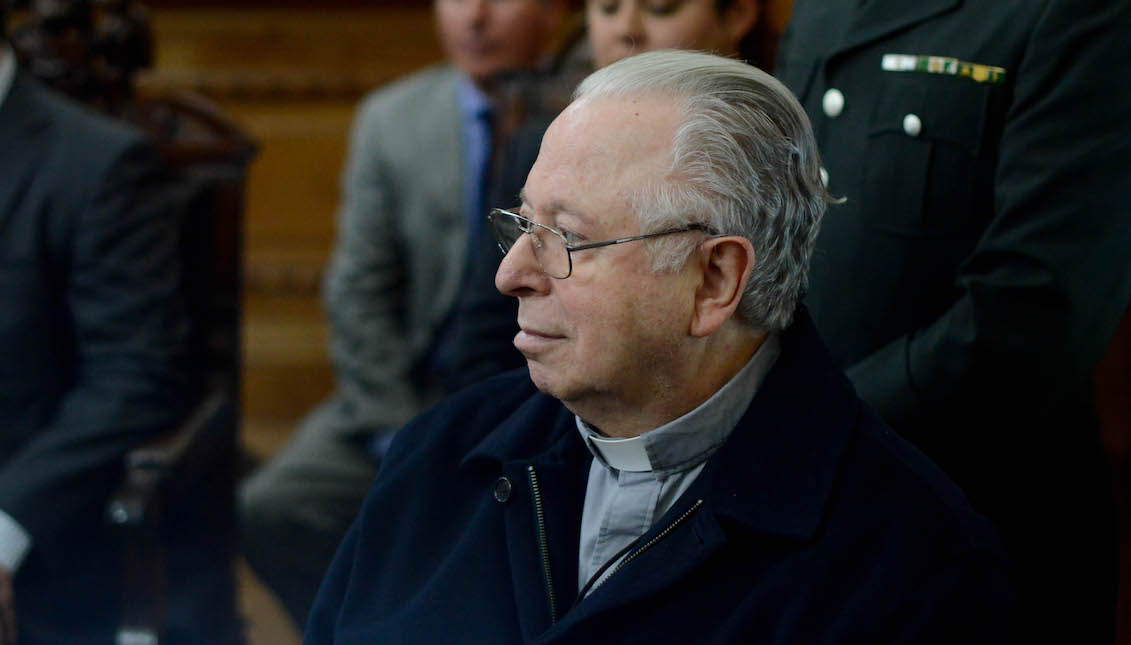
Maciel and Karadima: Emblematic cases of the Catholic Church's sexual abuse scandal in Latin America
The child sexual abuse scandal in the Catholic Church has tentacles in every country.
The child sexual abuse scandal in the Catholic Church has tentacles in every country, including Latin America. When the first cases in Europe and the United States were brought to light in the late nineties, nobody asked why it didn’t occur in Latin America, one of the most Catholic regions in the world. Nobody asked the question, at least not out loud.
Nevertheless, everything changed with Pope John Paul II's death in 2005 and the arrival of Benedict XVI. According to El País, a simple sentence from the prefect of the Congregation for the Doctrine of the Faith, Joseph Ratzinger, ”How much dirt is in the Church!” made him become a Pope. Ratzinger was talking about pederasty and sexual abuse and assumed the investigation of cases in countries with a strong Catholic tradition. The most scandalous was the case of the Mexican priest Marcial Maciel, founder of the Christ Legionaries congregation, and a trusted advisor of John Paul II.
The investigation against Maciel, filed in the Vatican, revealed the double life of the priest: he had four children, was a drug addict and was related with dozens of sex abuse denounces. But to punish one of the most powerful men in the Mexican Church, with connections to schools, seminars, and universities across Mexico as well as in other countries like Spain, was not an easy task to face. In 2006, Benedict ordered Maciel, almost 90 years old at the time, to “a life reserved of praying and penitence, quitting any form of public ministry." Maciel died, in the midst of the scandal, in 2008.
RELATED CONTENT
More than ten years have passed since the Maciel scandal and, slowly, other cases have been opened in many other countries as Catholic as México. All of the predators seem to have a similar profile: powerful and charismatic priest who have a big influence on their communities, are surrounded by a saint halo and followers that seem to be part of a sect, and are close to the power in their cities and countries, allowing them to use the silence or concealment of church authorities and almost inexistent efficiency of the judicial system.
The case of Chilean priest, Fernando Karadima, accused by at least 20 victims of sexual abuse, seems to mirror Maciel’s story. Karadima was one of the most well-known priests in Chilean upper class society. Allegations against him became known publicly years after church and authorities knew about accusations against him. The scandal became public knowledge in 2010, although the charges were from 2004. A year later, still during Pope Benedict XVI's papacy, Karadima’s sentence to “a life reserved of praying and penitence" did not differ much from the one that Maciel had received.
But in January 2018 Pope Francis visited Chile and Peru, and the tour didn’t go as expected. The issues surrounding pederasty and abuses from priests’ issues claimed all the headlines. In what was an unprecedented decision that May, Pope Francis asked for the resignation of all Chilean bishops who covered up abuse cases, and in September he suspended Karadima from the ministry. In Peru, things were similar: days before Pope Francis arrival, the founder of Catholic organization Sodalicio de Vida, Luis Fernando Figari, and some of the groups' members were imprisoned for the abuse of 36 people, including 19 minors.
While in the last decades, the number of Latin Americans that consider themselves as Catholics have decreased, from 80 percent in 1995 to 59 percent in 2017, these cases of high-profile predator clergy members shows the dark side of what can happen in societies with a strong religious influence. In countries like Colombia, where 73 percent of its population consider themselves as Catholic, journalists from W Radio station revealed the concealment of abuses from at least 33 priests who served in Medellín dioceses. These included Roberto Cadavid, who, despite allegations and being expelled from the Church in 2012, was recommended by Medellín archbishop, Ricardo Tobón, to profess its ministry in New York that same year, according to The Gothamist. In this case, opposite to the Chilean and Peruvian processes, the investigations have still not been closed, and discussion has been diverted to judicial confrontations between priests and the journalists.










LEAVE A COMMENT: